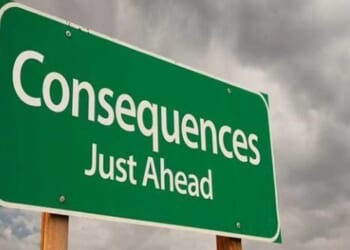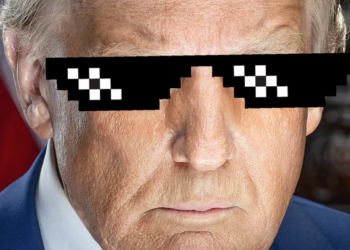
The Trump administration is still grappling with the fallout from Signalgate, the revelation that 18 of the president’s most senior Cabinet officials, along with Vice President JD Vance, were texting each other on an encrypted group chat about an upcoming strike in Yemen against the Houthi rebels.
We only know this, of course, because national security adviser Mike Waltz inadvertently included the editor-in-chief of The Atlantic, Jeffrey Goldberg, on the text chain. Had it been any number of other, less security conscious journalists added to the group instead of Goldberg, the strikes might have been revealed to the public prior to completion, thus severely compromising a U.S. military operation and endangering any number of intelligence operatives and military troops whose coordination was needed to carry out the strikes.
Since Goldberg’s article first appeared — and even after he released the full text chain for all to see — the administration has invested all its energy into denying and deflecting blame, and precisely none into addressing the massive risk to U.S. national security posed by its own practices.
Yet Defense officials at a somewhat lower echelon had become aware of threats to national security even before the Goldberg story broke.
On March 21, just three days before the Atlantic story ran, Undersecretary of Defense for Intelligence and Security Joe Kasper issued a memorandum titled “Efforts to Combat Unauthorized Disclosures,” which said that “recent unauthorized disclosures of national security information involving sensitive communications with principals within the Office of the Secretary of Defense demand immediate and thorough investigation.” The memo went on to suggest that polygraphs would be used as part of this investigation, and a report would be delivered to the secretary of Defense.
Other than to point out the apparent hypocrisy of the moment, no one appears to be putting two and two together: It seems highly likely that Kasper had picked up on leaks that were emanating from his own higher-ups in the department, as well as potentially from some of the 18 other administration officials who appear to have been communicating regularly in this same manner.
After all, the German magazine Der Spiegel reported that data from the devices of Mike Waltz, Pete Hegseth and Tulsi Gabbard, containing mobile numbers, email addresses and passwords, were found circulating on the internet. The data in some cases included WhatsApp profiles and Signal accounts, according to the magazine, thus raising the possibility that foreign actors already had access to the text thread to which Goldberg was added. This means the unauthorized Signal chat was likely accessible to foreign adversaries and, consequently, U.S. intelligence agencies.
If Kasper is serious about following through with his investigation, he will be administering polygraph tests to his own boss, Pete Hegseth, as well as to many of the other Cabinet officials who were on the group chat.
As more details emerge about the incident, it becomes clear that security practices are indeed lax to the point of cavalier. During the famed chat threat itself, reporting suggests that its various participants were scattered across the globe: Waltz was in Jeddah, Saudia Arabia, with Ukrainian officials; Witkoff was in Moscow meeting with Vladimir Putin; Gabbard was in one of several Asian countries; Rubio was in Quebec. In addition, Hegseth has allegedly included his wife in meetings at which classified information was discussed.
Given the potential exposure of highly sensitive national security information, a failure to conduct a serious investigation and damage assessment into the Signal text chain and other casual practices will mean that every foreign government with whom the U.S. shares information will know that the U.S. does not take the security of its own information seriously. Indeed, according to reporting shortly after the leak was revealed, the Israelis were furious about the potentially compromised intelligence relating to the strikes.
In the current administration, it will be nearly impossible for the undersecretary of Defense to conduct a robust investigation of the secretary and other Cabinet members. They are trying to brush Signalgate under the rug. But if they want to have a shred of credibility among U.S. allies and the public moving forward, the Trump administration should launch a serious high-level, not-just-for-show investigation into precisely what happened, how it happened, what damage it likely caused, and how best to prevent its recurrence.
This means that Attorney General Pam Bondi must appoint a special counsel to investigate the incident.
It is possible for presidents to appoint special counsels to investigate their own administrations. After all, former President Biden came into office when the John Durham investigation was still ongoing and he allowed it to continue for several years into his administration. Further, Biden did not fire Merrick Garland when he appointed a special counsel to investigate Biden’s own son, Hunter. Or when Garland appointed a special counsel to investigate Biden’s own handling of classified documents.
One thing is for sure: Continuing along the path of deflection and denial will only spread the damage, as the inconsistent denials and hollow attempts on Goldberg wear thin.
Claire Finkelstein is the Algernon Biddle Professor of Law and professor of philosophy at the University of Pennsylvania Carey Law School. She is founder and faculty director of the Center for Ethics and the Rule of Law, a nonpartisan interdisciplinary institute affiliated with Penn’s Annenberg Public Policy Center.












